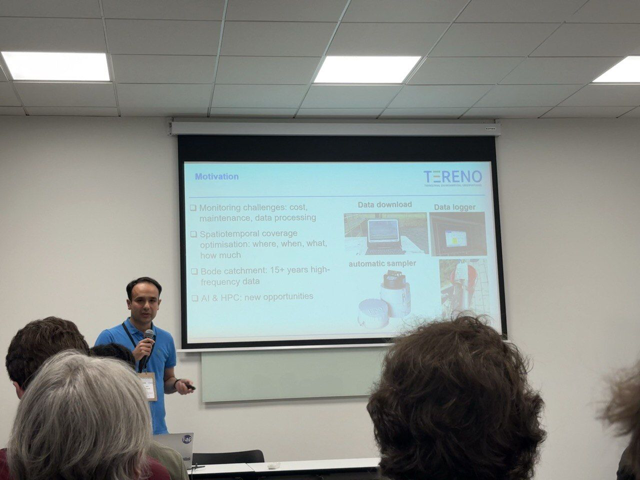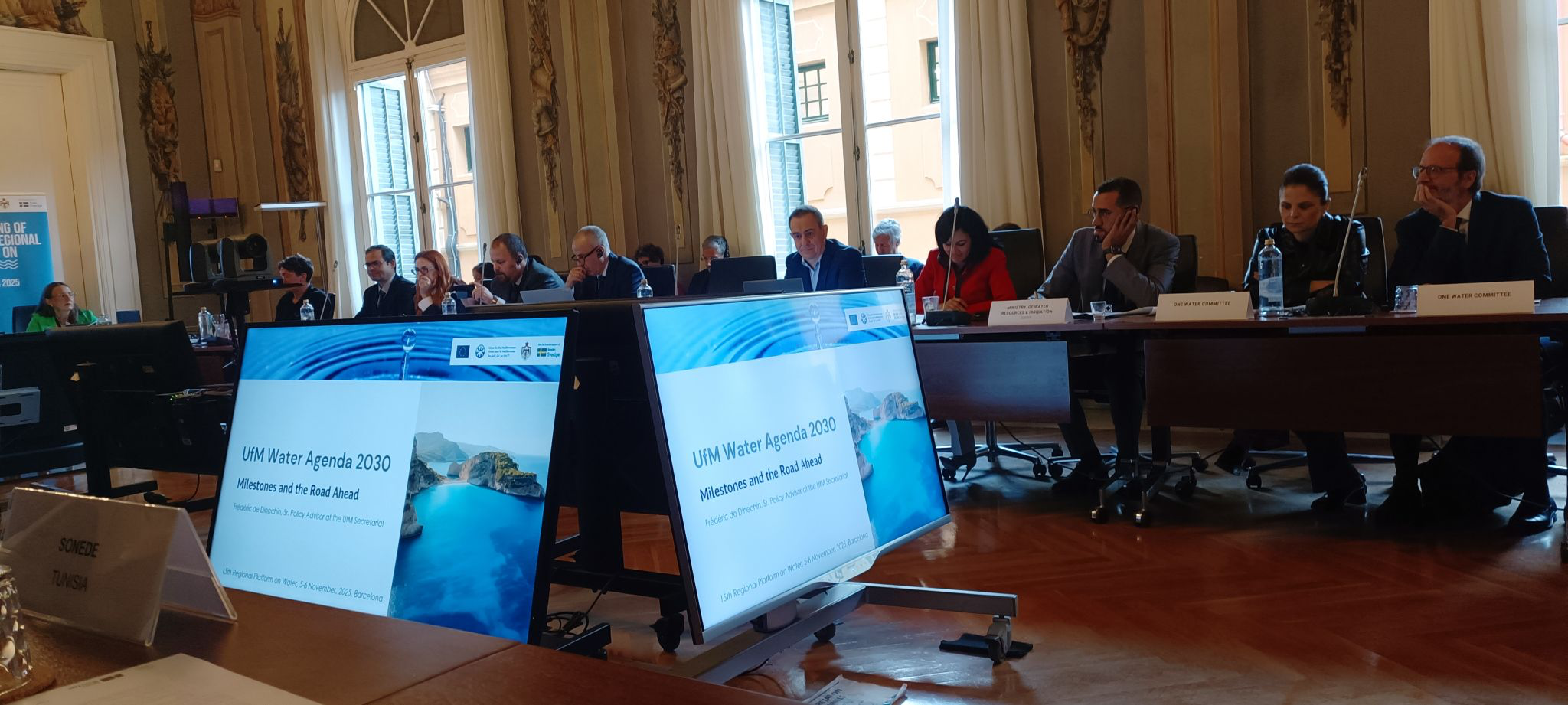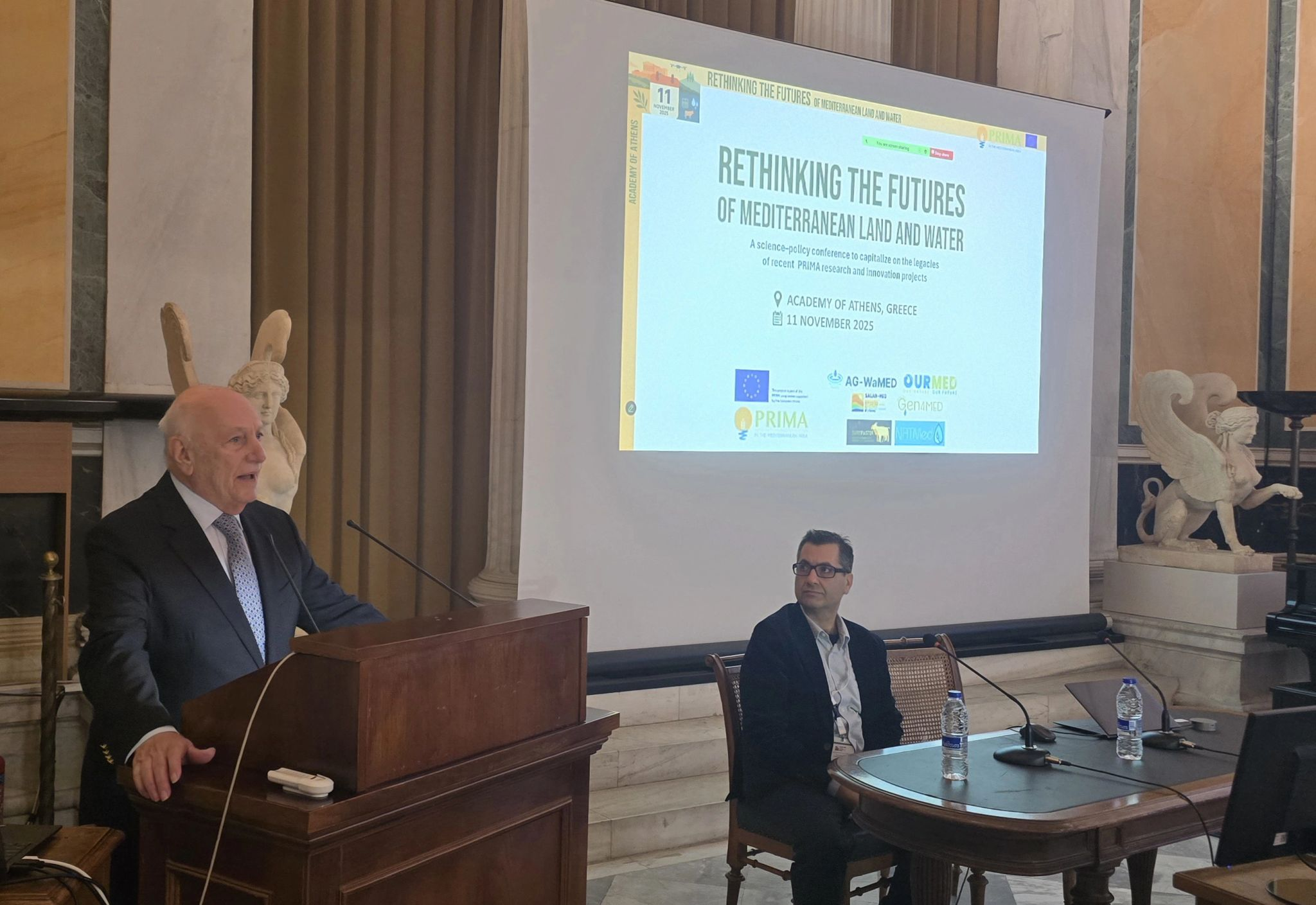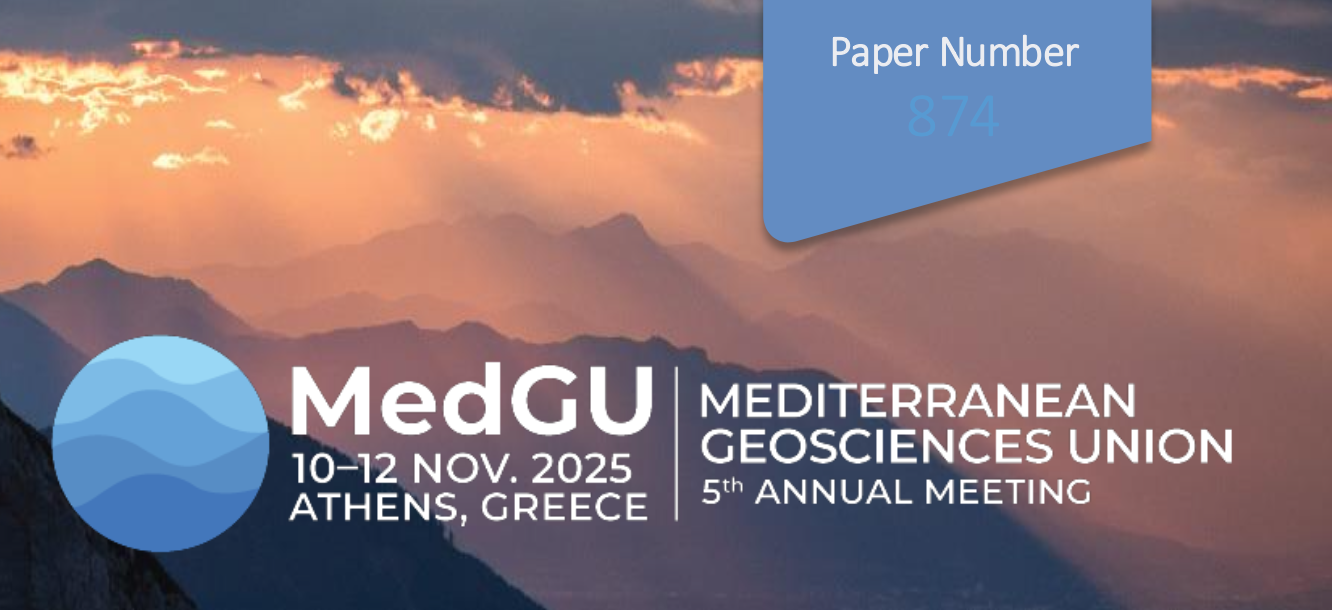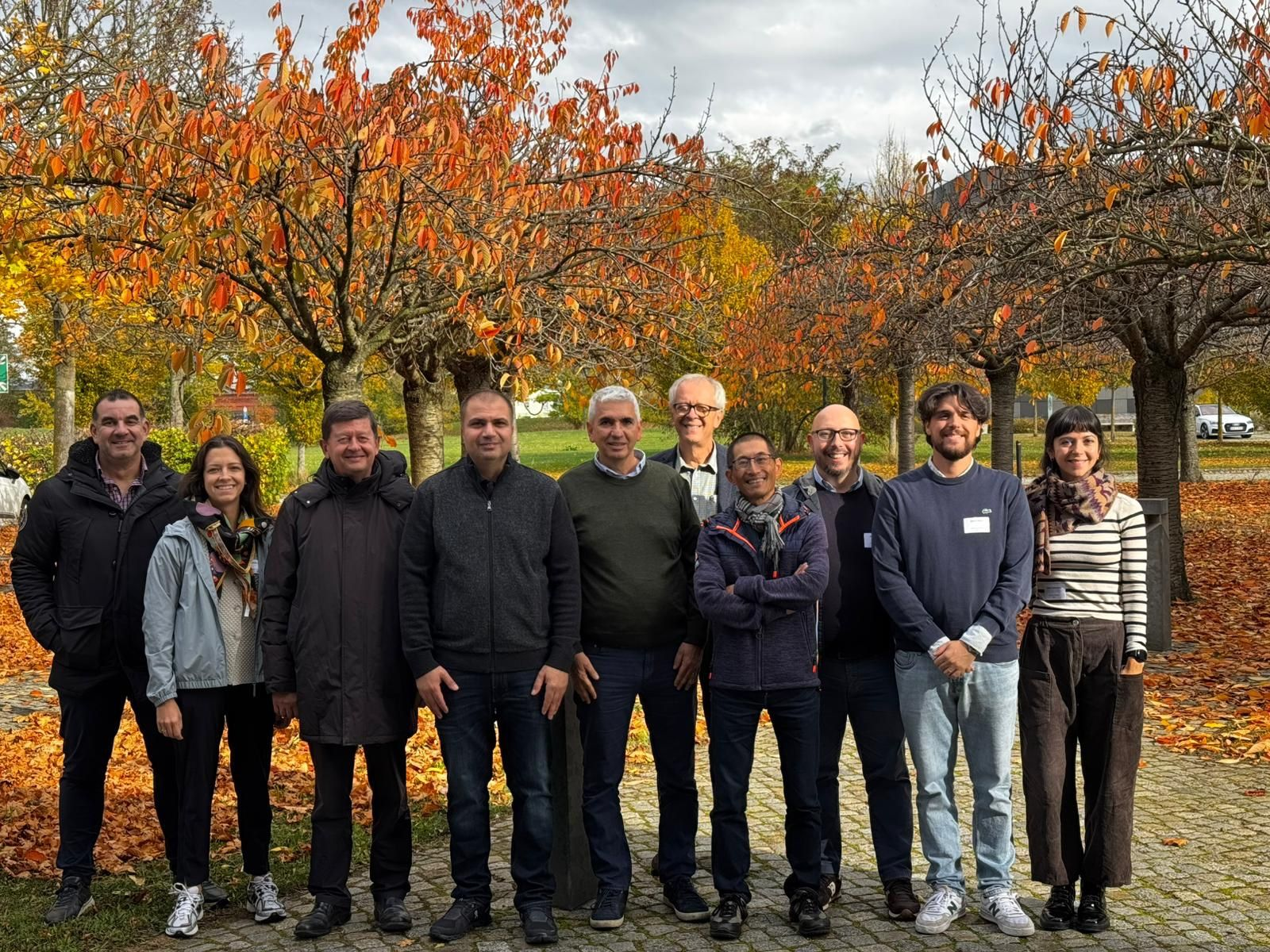A PhD researcher funded by the OurMED project recently presented two scientific talks at the 3rd OZCAR TERENO International Conference, held in Paris, France.
UT SEMIDE – the Euro-Mediterranean Water Information System – had the pleasure of taking part in the 15th Meeting of the UfM Regional Platform on Water, held in Barcelona on 5–6 November 2025, followed by the kick-off meeting of the 6th Mediterranean Water Forum (Euro-Mediterranean Water Forum) on 6–7 November 2025.
On 11 November 2025, OurMED partners: UfZ, UNISS, TUC, UNIPR and ESIM participated in the conference “Rethinking the Future of Mediterranean Land and Water” held in Athens, an initiative led by the PRIMA project SALAM-MED in collaboration with OurMED and NATMed. The event brought together experts, PRIMA-funded projects, decision-makers and young researchers to discuss innovative strategies for tackling the challenges of Mediterranean drylands.
The Technical University of Crete team presented OurMED at the 5th MEDGU Conference, held from 10–12 November 2025 in Athens, Greece. Their work focused on the application of the WEAP model to improve water allocation practices in the Keritis River basin (Crete).
Overview — Sustainable water management sits at the heart of climate resilience, yet faces intensifying pressures: over-extraction, water-quality degradation, biodiversity loss, and socio-economic inequities. Traditional, monosectoral approaches no longer suffice. At EGU 2026, this session spotlights integrated pathways for fairer water governance from catchments to policy.
Interdisciplinary scientists from France, Germany, Greece, Italy, Spain, Switzerland, Tunisia, and Türkiye gathered in Magdeburg for the Mediterranean Water Management Workshop, a two-day event dedicated to tackling “The Mediterranean Paradox” — a region simultaneously facing severe water stress and standing at the forefront of water management innovation.

